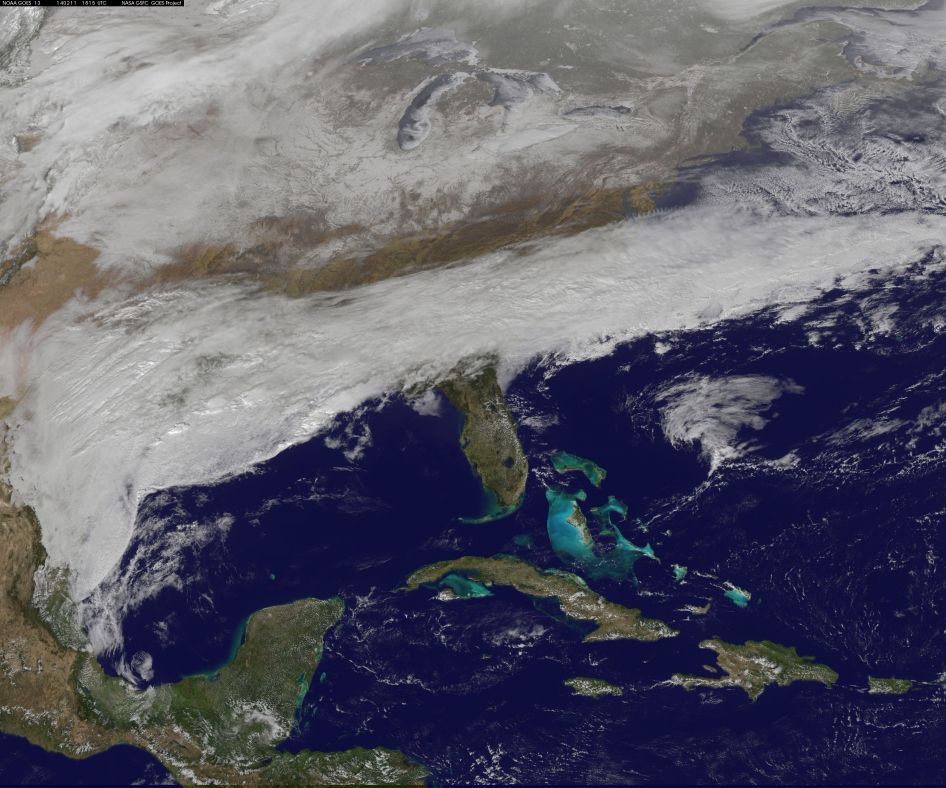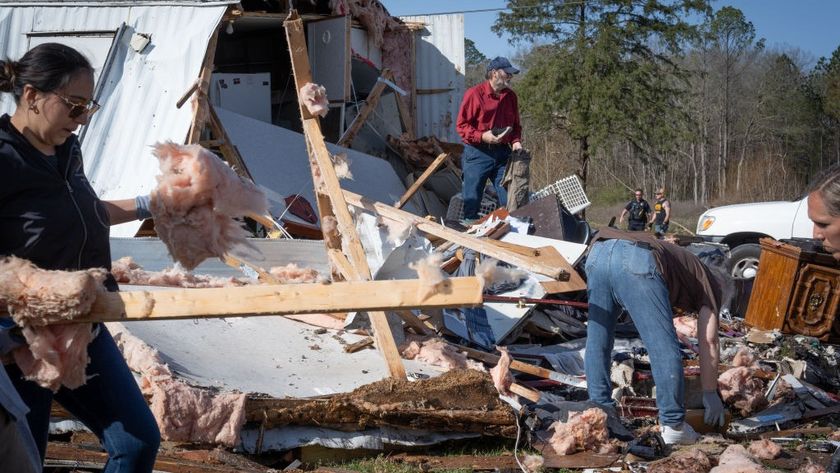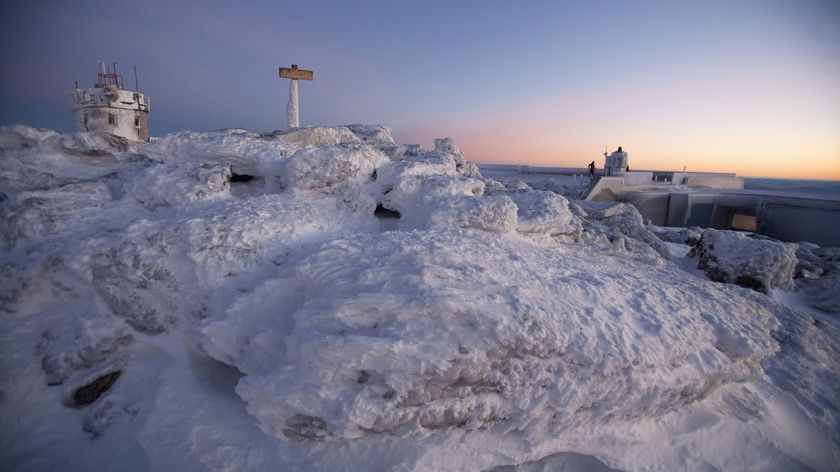
While a winter storm battered the southern United States and is now barreling up the East Coast, another storm is brewing among meteorologists.
Since 2012, The Weather Channel has named some winter storms; the channel has dubbed the current storm "Pax." But that decision has come under fire from several meteorologists and weather-forecasting organizations.
Those who oppose the policy say naming winter storms is a publicity stunt and that the criteria for giving blizzards a name is arbitrary. And because no official organization gives standardized names, it's possible that a storm could be given different names by different organizations and, in turn, confuse people.
"They've kind of gone rogue; it throws confusion in the mix," said James Spann, chief meteorologist for ABC 33/40 in Birmingham, Ala., referring to the Weather Channel's practice. "You cannot just do that when it comes to storms that can be life-threatening."
The Weather Channel, for its part, says that naming storms raises awareness of potentially dangerous weather systems, and can make it easier to track a storm's progress across the country, as well as monitor updates on social media. [The 10 Worst Blizzards in U.S. History]
No standard criteria
The National Weather Service, which is run by the National Oceanic and Atmospheric Administration, does not name winter storms and has no plans to do so, NOAA spokesman Christopher Vaccaro wrote in an email.
Sign up for the Live Science daily newsletter now
Get the world’s most fascinating discoveries delivered straight to your inbox.
What do you think of winter storms being named?
Tropical storms and hurricanes are given a single name from a list set by the United Nations World Meteorological Organization, and only get a moniker "once they achieve the universal criteria of becoming an organized area of low pressure with top winds of 39 mph," Vaccaro said.
Winter storms, by contrast, are much more variable than hurricanes, with the effects of a weather front varying widely over time and space. For instance, winter storms are often caused by the confluence of two weather fronts, said Marshall Moss, vice president for forecasting operations at Accuweather, which provides content to Live Science.
Awareness or confusion?
Naming a storm can raise awareness and provides a single message as the storm moves across the country, Weather Channel meteorologist Tom Niziol said in a presentation at the American Meteorological Society (AMS) meeting this month in Atlanta. Names can also help people follow storms on social media. Besides, he said, people tend to name epic snowstorms anyway — remember the Snowmageddon of 2010?
But The Weather Channel doesn't use standardized weather criteria to decide whether something is just a boring old winter storm or a "Nemo." Instead, it looks at how many people are affected and how many square miles the storm covers, as well as whether the National Weather Service has issued watches, warnings or advisories.
That can lead to some confusing situations, Moss said.
"I think The Weather Channel has confused media spin and public safety," Moss told Live Science.
For instance, more than 100 inches (250 centimeters) of snow was dumped on Ontario recently over a few days. The epic pileup, however, didn't affect many people and therefore wasn't given a name by The Weather Channel, Moss said.
At the AMS meeting, Niziol maintained that while The Weather Channel's naming system was "far from perfect," it was done with sound criteria and by experts. "Full control for naming a storm is done with a meteorologist," he said.
And because no official body is naming the storms, that also leaves the naming open to the public, who could choose multiple names. For instance, The Washington Post's Capital Weather Gang has unofficially dubbed the storm "Snochi," a spoof of the Russian city hosting the 2014 Winter Olympics, a name suggested by fans on social media. [Snow Day: Images of the Storm]
It's also not clear whether The Weather Channel's names are popular with the public. Facebook currently has a page called "STOP the Weather Channel from naming winter storms - it's stupid," which has 609 likes. In a Capital Weather Gang poll, 60 percent of respondents were against naming this storm.
Several meteorologists declined to comment for this story because of the contentiousness of the idea.
While naming winter storms could potentially have some benefits, it can't be done unilaterally, Spann said.
The right way to do it is to get all the weather agencies and meteorologists together, Spann said.
"You agree and standardize, and everybody uses that name," Spann said.
Niziol said that he understood why other meteorologists were upset with The Weather Channel. "I think we got a lot of well-deserved criticism," he said. "Because we never got out there and told you how we were doing this."
But he said the network plans to continue the practice of naming and was working to improve and clarify its naming criteria.
Live Science Planet Earth Editor Andrea Thompson contributed reporting.
Follow Tia Ghose on Twitter and Google+. Follow Live Science @livescience, Facebook & Google+. Original article on Live Science.

Tia is the managing editor and was previously a senior writer for Live Science. Her work has appeared in Scientific American, Wired.com and other outlets. She holds a master's degree in bioengineering from the University of Washington, a graduate certificate in science writing from UC Santa Cruz and a bachelor's degree in mechanical engineering from the University of Texas at Austin. Tia was part of a team at the Milwaukee Journal Sentinel that published the Empty Cradles series on preterm births, which won multiple awards, including the 2012 Casey Medal for Meritorious Journalism.











